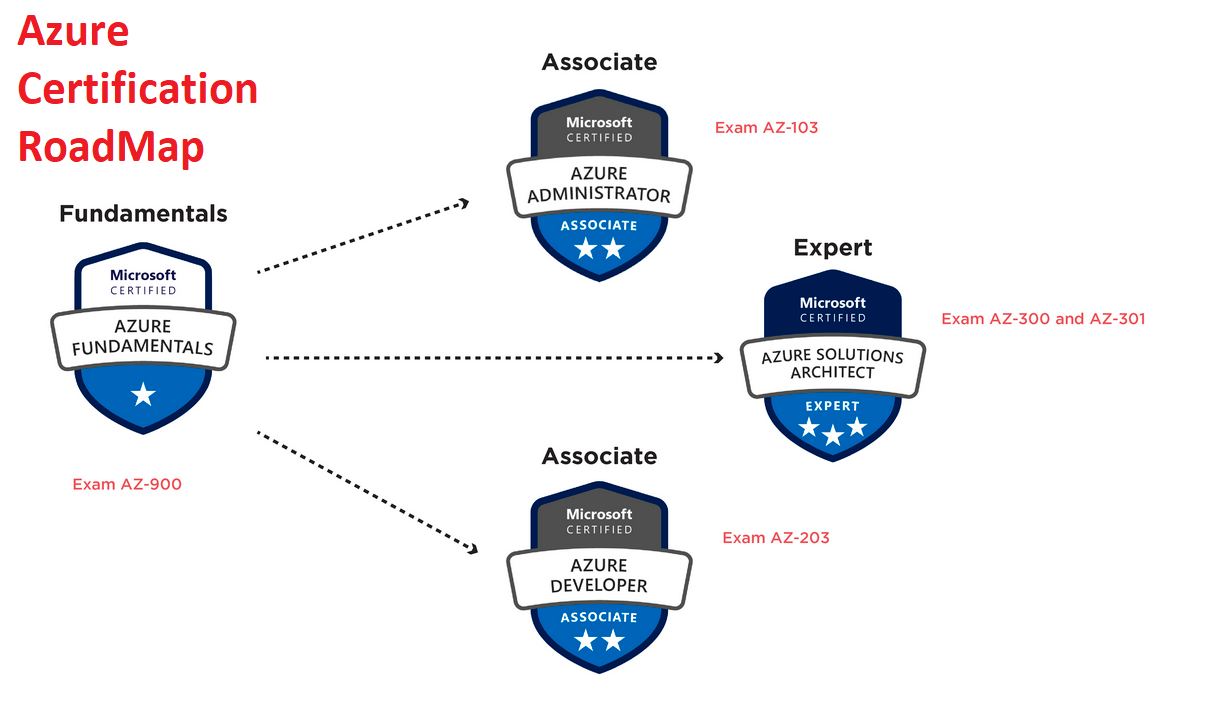In today’s rapidly evolving tech landscape, obtaining certifications has become a crucial step for professionals aiming to validate their skills and advance their careers. Among the most sought-after certifications are those offered by Microsoft Azure, a leading cloud services provider. Navigating the Azure Certification path can be daunting due to the variety of certifications available. This guide will help you understand which certification is right for you and how Azure Online training can facilitate your journey.
Understanding the Azure Certification Path
The Azure Certification path is designed to cater to a wide range of professionals, from beginners to experts. Microsoft offers certifications at three primary levels: Fundamental, Associate, and Expert. Each level is tailored to specific roles and skill sets, ensuring that you can find the certification that aligns with your career goals.
1. Fundamental Level Certifications
These certifications are ideal for individuals who are new to cloud computing or Azure. They provide a foundational understanding of Azure services and basic cloud concepts.
-
Azure Fundamentals (AZ-900): This is the entry-level certification that covers core Azure concepts, services, solutions, and pricing. It’s perfect for those who are starting their journey in the cloud and want to get a broad understanding of Azure.
2. Associate Level Certifications
These certifications are intended for professionals who have some experience with Azure and want to specialize in specific roles.
-
Azure Administrator Associate (AZ-104): This certification is designed for IT professionals who manage cloud services covering storage, security, networking, and compute cloud capabilities. It’s suitable for those who perform day-to-day management of Azure services.
-
Azure Developer Associate (AZ-204): Targeted at developers, this certification focuses on designing, building, testing, and maintaining cloud applications and services on Azure. It’s ideal for software developers who want to advance their skills in cloud development.
-
Azure Security Engineer Associate (AZ-500): This certification is aimed at security professionals who implement security controls, maintain security posture, and manage identity and access. It’s perfect for those looking to specialize in cloud security.
3. Expert Level Certifications
These certifications are for professionals with extensive experience and a deep understanding of Azure services. They are designed to validate advanced skills and knowledge.
-
Azure Solutions Architect Expert (AZ-305): This certification is for solutions architects who translate business requirements into secure, scalable, and reliable solutions. It’s best suited for those with a comprehensive understanding of IT operations, including networking, virtualization, identity, security, business continuity, disaster recovery, data management, and governance.
-
Azure DevOps Engineer Expert (AZ-400): This certification is for DevOps professionals who combine people, processes, and technologies to deliver valuable products and services that meet end-user needs and business objectives. It’s ideal for those who design and implement strategies for collaboration, code, infrastructure, source control, security, compliance, continuous integration, testing, delivery, monitoring, and feedback.
The Role of Azure Online Training
To successfully navigate the Azure Certification path, it’s essential to undergo proper training. Azure Online training provides a flexible and comprehensive approach to learning, allowing you to study at your own pace and convenience.
Benefits of Azure Online Training
-
Flexibility: Azure Online training allows you to learn from anywhere at any time. This flexibility is especially beneficial for working professionals who need to balance their job responsibilities with their learning goals.
-
Comprehensive Coverage: Online training courses cover all aspects of the Azure Certification path, ensuring that you receive in-depth knowledge and hands-on experience. These courses often include interactive labs, practice exams, and real-world scenarios to enhance your learning experience.
-
Expert Instructors: Many Azure Online training platforms offer courses taught by certified Azure experts who provide valuable insights, tips, and best practices. Learning from experienced professionals can help you understand complex concepts and prepare effectively for certification exams.
-
Up-to-Date Content: The field of cloud computing is constantly evolving, and Azure Online training ensures that you have access to the most current information and resources. This is crucial for staying updated with the latest Azure services and features.
Choosing the Right Certification for You
When selecting the appropriate certification on the Azure Certification path, consider your current role, experience, and career aspirations. Here are some steps to help you make the right choice:
-
Assess Your Current Skills: Evaluate your existing knowledge and experience with Azure. If you are new to cloud computing, starting with the Azure Fundamentals certification might be the best option. For those with some experience, an Associate level certification could be more suitable.
-
Identify Your Career Goals: Determine your career objectives and how an Azure certification can help you achieve them. For instance, if you aspire to become a cloud architect, the Azure Solutions Architect Expert certification would be ideal.
-
Research Certification Requirements: Review the prerequisites and requirements for each certification. Ensure that you meet the necessary criteria before embarking on the certification path.
-
Utilize Azure Online Training: Enroll in Azure Online training courses to gain the required knowledge and hands-on experience. These courses will help you prepare effectively for the certification exams and increase your chances of success.
Conclusion
The Azure Certification path offers a range of certifications that cater to different roles and skill levels. By understanding the various certification options and leveraging Azure Online training, you can select the certification that aligns with your career goals and enhances your professional growth. Whether you are a beginner or an experienced professional, obtaining an Azure certification can open up new opportunities and help you stay competitive in the ever-evolving tech industry.

